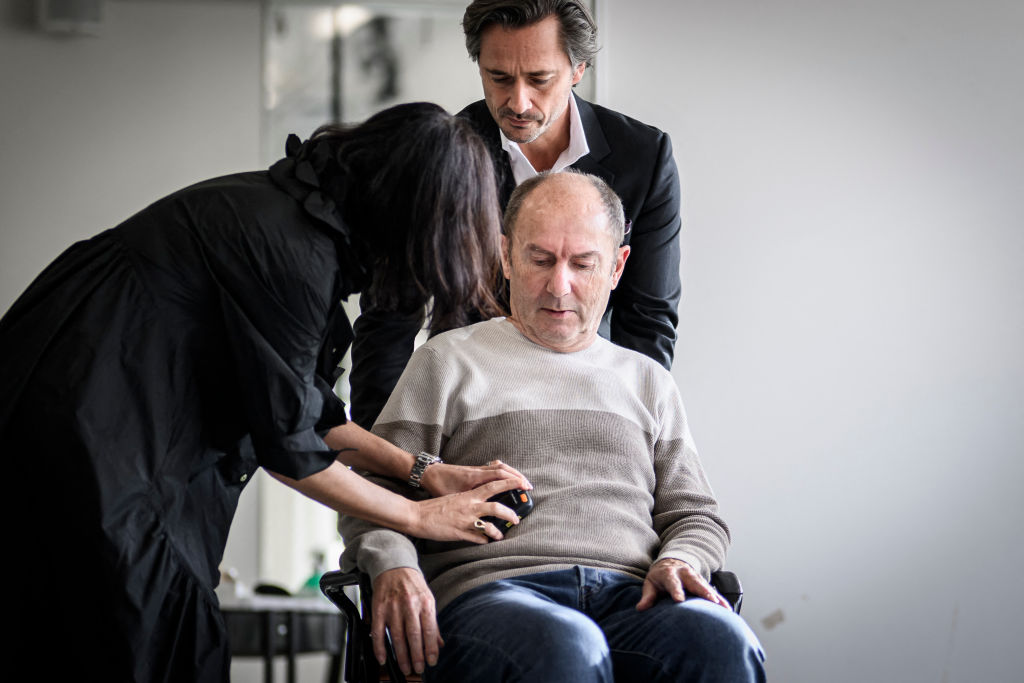Groundbreaking Spinal Implant Dramatically Improves Mobility for Parkinson’s Patient
In a remarkable breakthrough, a new spinal implant has revolutionized the mobility of a man in the advanced stage of Parkinson’s disease. The implant, designed to provide electrical stimulation directly to the spinal cord, has allowed the patient to walk smoothly and navigate challenging terrains without the risk of falling.
The recipient of this innovative technology is a 62-year-old Parkinson’s patient named “Marc” from Bordeaux, France. Before receiving the implant, Marc suffered from severe mobility issues, often experiencing falls and periods of immobility. However, after undergoing a precision neurosurgical procedure at Lausanne University Hospital (CHUV) two years ago, his life has been transformed.
The implant consists of an electrode field placed against Marc’s spinal cord and an electrical impulse generator located beneath his abdomen’s skin. Unlike traditional approaches that target brain regions affected by dopamine-producing neuron loss, this breakthrough therapy focuses on the spinal area responsible for activating leg muscles during walking.
By creating a personalized map of Marc’s spinal cord and identifying the precise locations that control leg movements, the research team conducted the procedure. Each leg was equipped with a movement sensor that communicated with the implant when Marc intended to walk. In response, the implant delivered electrical impulses to the specific spinal neurons related to his movement, constantly adjusting in real time.
The results have been nothing short of remarkable. Marc can now walk almost normally, achieving a feat of walking six kilometers. He can navigate tasks like climbing stairs with ease and enjoys leisurely walks. This newfound mobility has greatly improved Marc’s quality of life.
Project supervisor Jocelyne Bloch, a professor and neurosurgeon at CHUV Lausanne University Hospital, expressed her optimism about the progress. She believes that the outcomes of this spinal implant open up practical possibilities for advancing Parkinson’s disease treatment.
While the current implementation of the implant is personalized to each individual, the research team aims to develop a commercial version of the neuroprosthetic suitable for broader implementation. Grégoire Courtine and Jocelyne Bloch, the co-leaders, are actively collaborating with Onward Medical to advance the development of this innovative technology.
The researchers envision extending the reach of this groundbreaking technology to benefit Parkinson’s patients worldwide. To achieve this, clinical trials on more patients are set to begin early next year.
The remarkable progress achieved through the spinal implant offers hope for individuals with Parkinson’s disease and paves the way for enhanced treatment options in the future.

I have over 10 years of experience in the cryptocurrency industry and I have been on the list of the top authors on LinkedIn for the past 5 years. I have a wealth of knowledge to share with my readers, and my goal is to help them navigate the ever-changing world of cryptocurrencies.




